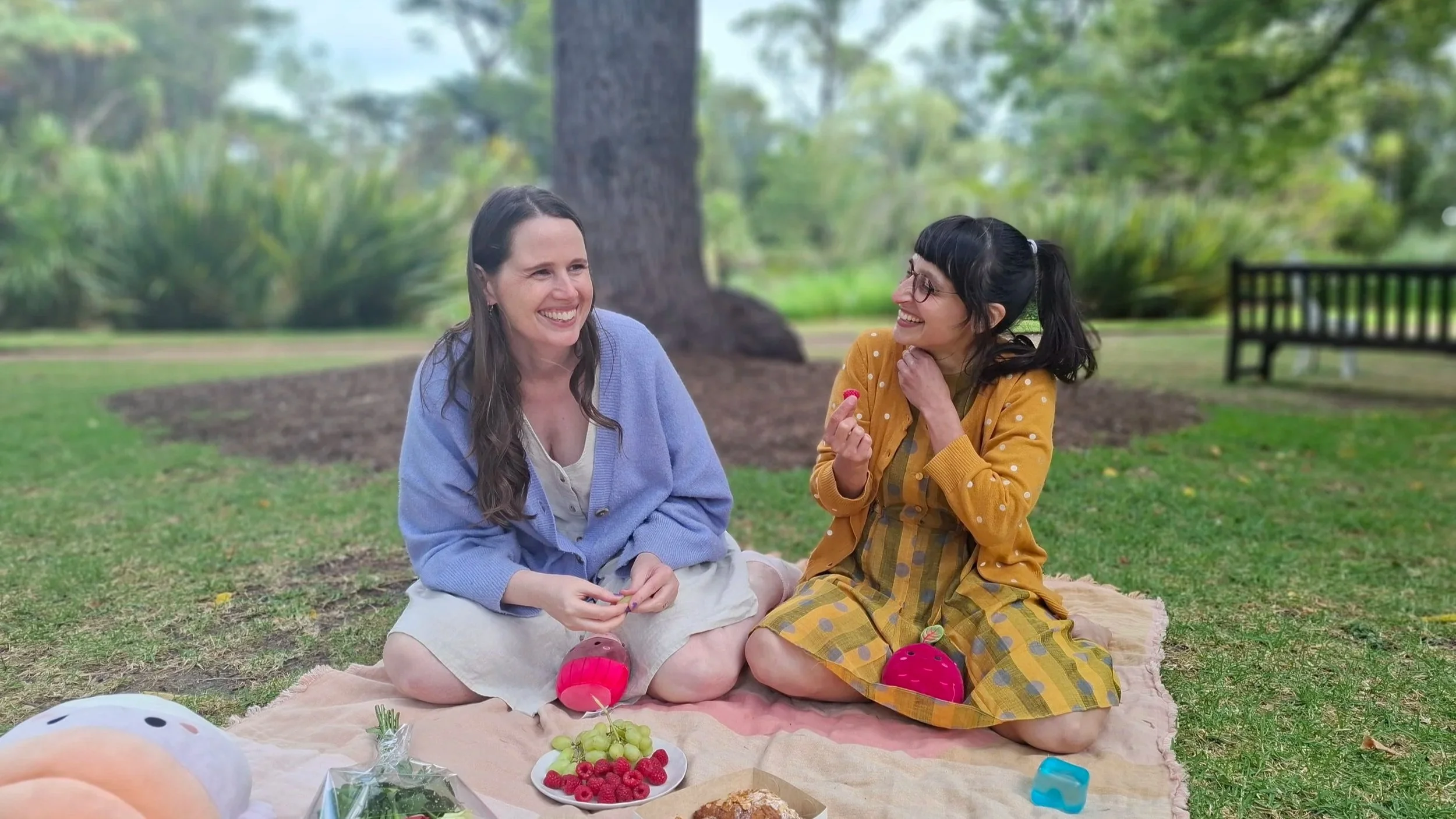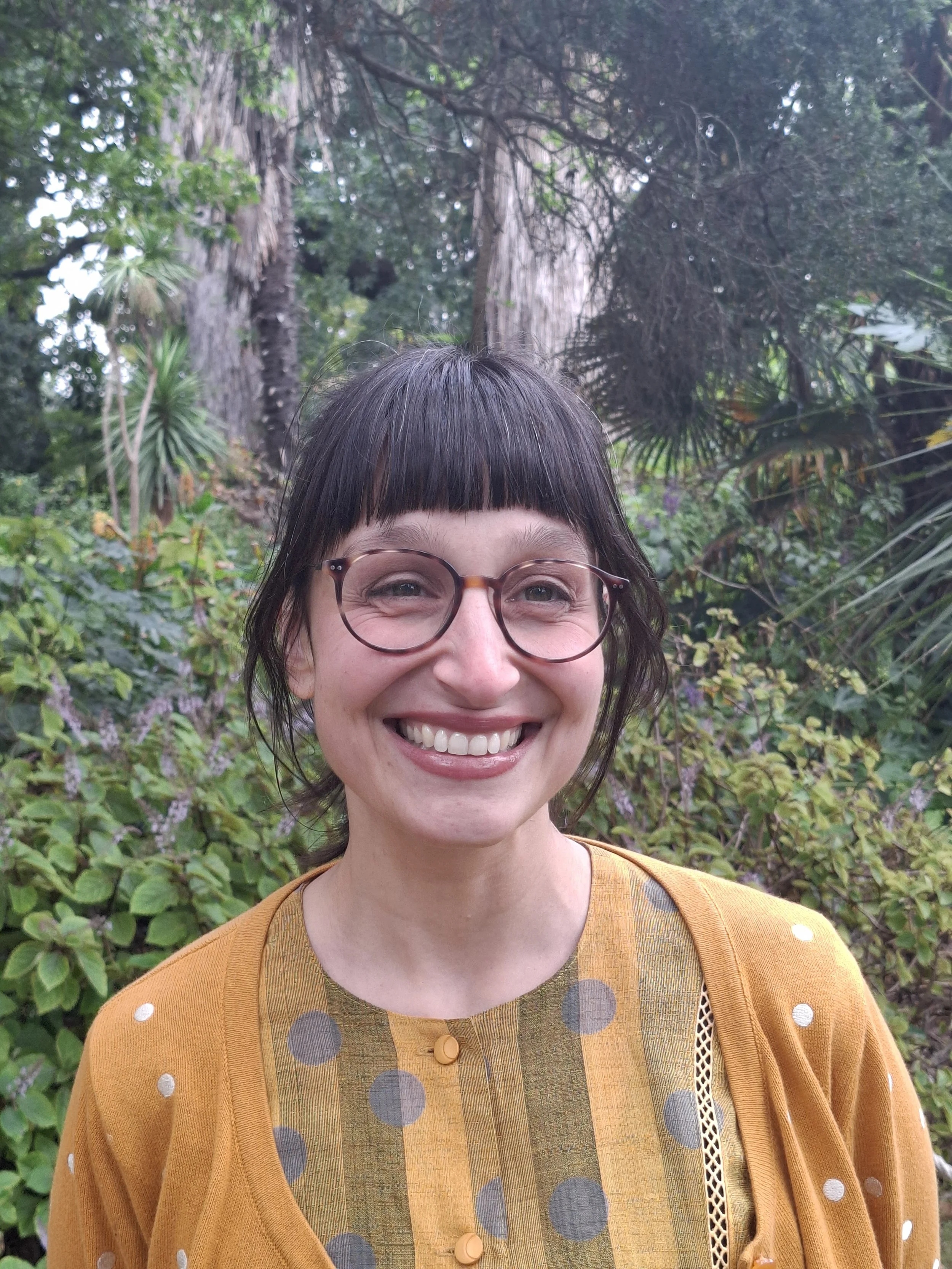
ARFID and Neuroaffirming Care
Practitioner Course
Support neurodivergent clients with confidence, compassion and clarity.
This is more than just a course.
It’s a framework for change — designed to help you understand Avoidant/Restrictive Food Intake Disorder (ARFID) through a trauma-informed and neuro-affirming lens, so you can truly support your clients in ways that are safe, respectful, and effective.
Sign up now for early bird pricing!
It’s for:
Nutritionists & Dietitians
Naturopaths
Allied Health and Mental Health Professionals supporting Neurodivergent People
Whether you're newer to ARFID or already working in this space but want to align your approach with trauma-informed, neuro-affirming care, this course will meet you where you are and take you deeper.
This course is designed for practitioners who work with children, teens, or adults who have complex relationships with food. You may already suspect ARFID or know you’re working with it—this course gives you the depth, tools, and confidence to support someone with ARFID meaningfully.
Who is this course for?
This course is:
Grounded in lived experience, research, and real-world practice
Created with a neurodivergent-affirming and trauma-informed foundation
Focused on reducing harm, building trust, and supporting autonomy around food
Rich in practical tools, reflective prompts, and clinical applications you can use immediately
Designed to help you feel more confident, more competent, and more aligned with the kind of care you want to give
A 6 week course that includes:
Two pre-recorded lessons will be released each week.
Three live calls where we will reflect on the course content and you can pick our brains.
An ARFID lived experience panel with some absolute legends.
Downloadables and clinical resources including:
Reflection activities to unpack your own clinical biases and reframe your approach
Printable resources and tools you can use in consultations
12 months access to the full course content
Certificate of Completion
Confidence that your practice is safer and more affirming for neurodivergent clients
Practitioner Course Content & Format
-
What is Neurodiversity Affirming Care & What is ARFID: introduces the foundations of neuro-affirming and trauma-informed care, including exploring the importance of the neurodiversity paradigm in practice. It breaks down what it means to be neuro-affirming, the power of language and terminology, and why these approaches matter for building trust and delivering respectful, person-centred care. This week also includes an introduction to ARFID—what it is, what it isn’t, we will go through the DSM Criteria and limitations. We’ll review what the evidence says about traditional ARFID "treatment", discuss what it means to de-pathologize ARFID, and explore why a neuro-affirming lens is essential for truly understanding and supporting individuals with ARFID.
-
The initial appointment: we move from the foundations into the clinical space, focusing on how to approach the initial appointment in a neuro-affirming and trauma-informed way. This session explores how to build rapport, establish relational safety, and adapt our assessment frameworks to be flexible and inclusive. We’ll reflect on our own strengths, challenges, and biases as clinicians, and practice core counselling skills like active listening, validation, and holding space. The aim is not to change how you conduct assessments, but to consider how we can adapt our approach to centre curiosity, autonomy, and collaboration—laying the groundwork for a strong therapeutic relationship and meaningful ongoing support.
-
Towards the end of week 2 we will have a live group call, a time to reflect and ask questions. It will be recorded for those who may not be able to make the live.
-
Assessing for ARFID: focuses on what to look for and how to screen for ARFID. We will explore how you build a comprehensive assessment picture plus how to identify nutritional deficiencies, when further testing may be needed, and the role of allied health professionals in assessment, support and diagnosis. This week also looks at differential considerations such as what else might be going on if it’s not ARFID—including sensory processing differences, Pervasive Drive for Autonomy (PDA), and Paediatric Feeding Disorder, with guidance on when and where to refer on.
-
ARFID & Feeding differences Support Strategies: introduces a framework for supporting individuals with ARFID in a safe, individualised way. It emphasises emotional and sensory safety, centering client autonomy, and using strengths-based, trauma-informed, neuro-affirming approaches. This week also considers when it may be appropriate to explore new foods and when the focus should remain on nourishment through safe foods, supplements and supporting the relationship to food and body.
-
Towards the end of week 4 we will have a live group call, a time to reflect and ask questions. It will be recorded for those who may not be able to make the live.
-
Follow up consultations: explores how to hold space for clients while supporting progress over time. It covers strategies for checking in and monitoring change—looking at mealtime experiences, nutritional adequacy, and client reflections on what’s working and what’s not. You’ll learn approaches for collaborative goal setting, motivational interviewing, and how to respond when progress feels slow or stagnant, while considering factors like sensory processing differences and fluctuating daily capacity. This week also emphasises celebrating successes, big and small, and brings everything together through a practical case study.
-
A pre-recorded panel interview with guest practitioners, all with their own lived and professional experience of ARFID.
We have these wonderful people joining us below:
Cody Robinson from New Leaf social work
Lumen Gorrie from Brains beyond Binaries
Bri Thomas from The Psych Hive
Gabriel Lubieniecki-Maynard from Swan Centre
More to come on this!
-
A group space for practitioners to bring their case studies, reflect and ask any final questions.
Early Bird Pricing
Pay in Full: $855 (10% off full price)
Payment Plan: 3x monthly payments of $285 (10% off full price)
The early bird pricing will end at 9pm on Friday the 10th of October.
Note: the payment plan option is only available during the early bird period.
Key Learning Outcomes
Develop skills to support clients using a neuro-affirming and trauma-informed approach
Build a clear understanding of ARFID and feeding differences, including their nuances
Recognise the unique challenges neurodivergent people face with food, nutrition, and their relationship with food and eating
Identify red flags and know when to refer to other professionals
Compassionate guidance in exploring and questioning our assumptions, biases, expectations, and values we may hold about food and nutrition
Learn practical strategies to assess for and support ARFID
Explore how to support individuals with ARFID while prioritising emotional and sensory safety
Promote positive mealtime environments – reduce pressure, support connection, and create safe spaces for eating
Guidance for parents of children with ARFID
Meet your Facilitators
-
I am a proudly neurodivergent, mother of two, Certified Practicing Nutritionist and founder of Whole Body Nutrition. My goal for Whole Body Nutrition is to utilise my lived experience and clinical expertise to educate and empower others. To spread the message that all bodies and brains are worthy and valuable.
-
I am a neurodivergent dietitian and a mum of two humans. Having worked for over 15 years as a clinical dietitian in a hospital setting, I deeply understand what it is like navigating the healthcare system as a neurodivergent person and parent. I have a special interest in mental health, eating disorders, gastrointestinal health and PDA (pervasive demand avoidance or persistent drive for autonomy).
Early bird pricing and payment plan option ends 9pm Friday 10th of October, 2025.







